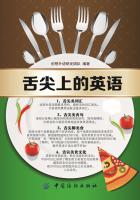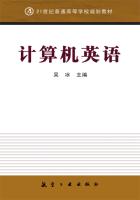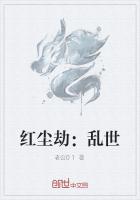亲爱的同学们,时间状语从句是英语中使用非常广泛的语法项目,也是英语四、六级考试中的高频语法项目。因此,理解和掌握时间状语从句是英语学习中必不可少的。
16.1状语从句的基本概念和类型
1.状语从句的基本概念
在句中作状语的从句叫做状语从句,一般由从属连词来引导,它相当于副词或副词短语,可以用来修饰动词、定语或状语,或者整个句子。例如:
By the time I got home, she had already gone to bed.
我到家时她已经睡觉了。
I have learned many things since I left my hometown.
自从我离开家后,我学到了很多东西。
Providing/provided that you give me a hand, I will finish that more quickly.
假如你能帮我,我会完成得更快。
It is so hot that we can not keep on the work.
天气这么热,以至于我们不能坚持工作。
2.状语从句的基本类型
状语从句根据连接词或连接短语的意义,可以分为时间状语从句、地点状语从句、条件状语从句、方式状语从句、让步状语从句、原因状语从句、结果状语从句、目的状语从句、伴随状语从句、对比状语从句等。
16.2时间状语从句的基本用法
在复合句中,由时间连接词引导的状语从句叫做时间状语从句。引导时间状语从句的连接词有when, as, while, since, whenever, before, after, till, until, once, as soon as, the moment,immediately, no sooner … than, hardly (scarcely) … when, the instant, instantly, the minute,directly, each time, the second,等等。例如:
As soon as I reach Canada, I will ring you up.
我一到加拿大,就给你来电话。
When you think you know nothing, then you begin to know something.
当你以为自己一无所知的时候,你就开始知道一些事物了。
1.表示某个时刻或某段时间(when, as, while, by the time, in the very times when,whenever, the+表示一段时间的词或短语)
1)when
(1)when 引导时间状语从句时表示“当……的时候”,when 既可以指时间段,也可以指时间点。从句中的谓语动词既可以是延续性动词,也可以是非延续性动词;从句的动作可以和主句的动作同时发生,也可以先于主句的动作发生,此时相当于after;当when 引导的时间状语从句的谓语动词是延续性动词时,有时可与while 互换。例如:
I often missed my home a lot when I was abroad.(可与while 互换)
我在国外时,常常很想家。
When I came home, my wife was cooking dinner.(不能用while)
我回家时,妻子正在做晚饭。
When the film ended, people rushed out of the hall.(相当于after)
电影结束后,人们冲出了播放大厅。
(2)when 引导的时间状语从句置于主句后面,同时从句中谓语动词又是短暂性动词时,常表示“此时突然……”。例如:
My mind and car were in auto pilot, ready to go when suddenly my trance was broken by an unforgettable sight.
我的心仿佛和汽车一样都挂在自动挡,随时准备开动,突然一幕令人难忘的情景让我从神思恍惚中惊醒。
(3)如果when 引导的时间状语从句的主语与主句的主语相同,而从句的谓语又是be 动词时,那么从句中的主语和be 可以省略。例如:
When (you are) in trouble, ask her for help.
当你遭遇麻烦的时候去向她求助。
(4)当when 引导的时间状语从句的主语与主句的主语相同时,往往还可以用“when+分词”的形式替代该状语从句。例如:
When I came into the room, I found him lying there asleep.
When coming into the room, I found him lying there asleep.
当我进入房间的时候,我发现他躺在那儿睡着了。
2)while
while 引导时间状语从句时表示“当……的时候”,它强调主句的动作与从句的动作同时、持续地进行。用于这一用法时,while 引导的时间状语从句和主句中的谓语动词必须是延续性动词,或者主句的动作发生在从句动作的进行过程中,主句中的谓语动词通常是非延续性动词。例如:
Study while you study;play while you play.
该学习的时候就学习,该玩的时候就玩。
I met her while I was at school.
当我在学校的时候我遇见了她。
3)as
(1)as 常可与when, while 通用,译作“当……的时候”。例如:
As I watched from the front line of traffic, I saw a miracle unfold before my eyes.
当我从停车线前方看时,一幕奇迹展现在我眼前。
(2)as 表示主句和从句的动作同时发生,常译作“一边……一边”。例如:
He sang happily as he walked along the path.
他沿着那条路一边走一边哼着小曲。
(3)as 常用来说明两种正在发展和变化的情况,此时常译作“随着……”。例如:
As families move away from their stable community, their friends of many years, their extended family relationships and the informal flow of information are cut off.
随着家庭从稳定的社区搬迁,他们多年的朋友、他们各家的亲属关系和非正规的信息渠道都被切断了。
4)the+表示一段时间的词或短语
The four years I was at university, I was very happy.
大学的四年,我非常快乐。
The while I was reading, they were eating melon seeds, watching TV and chatting.
在我读书的时候他们在吃瓜子、看电视、闲聊。
2.表示频度(as often as, each time, every time, whenever, no matter when, any time)
例如:
The line was engaged as often as I tried to phone him.
每次我给他打电话都占线。
Each time I spelt the word, I made the same mistake.
我每次拼写这个词,总是犯同样的错误。
Whenever (Any time, No matter when) they are free, they play football.
不论什么时候有时间,他们都去踢足球。
3.表示“立即”、“一……就……”[once, as soon as (directly, immediately, the moment, the instant), scarcely (hardly, not, barely, only just) … when …, no sooner … than …]
例如:
Once you understood this question, you would understand that one.
一旦你理解了这个问题,你也就理解了那个问题。
I had hardly (scarcely, barely, only just) gone to bed when the doorbell rang.
我刚要上床睡觉,门铃就响了。
As soon as he saw the policeman, he ran away.
Hardly had he seen the policeman when he ran away.
No sooner had he seen the policeman than he ran away.
He ran away immediately/directly/instantly he saw the policeman.
He ran away the moment/the minute/the instant he saw the policeman.
他一看见警察就跑了。
4.表示“在……之前,在……之后”(before, after)
(1)before 引导时间状语从句时表示主句的动作发生在从句动作之前,after 引导时间状语从句时表示主句的动作发生在从句动作之后。例如:
See me before you leave.
在你离开之前来见我。
I found his pen after he has left.
在他走后,我找到了他的笔。
(2)before 有时可译为“还没……就……”。例如:
He had measured me before I could say a word.
我还没来得及说话他就给我量好了尺寸。
I slipped out before the lecture started.
还没等讲座开始我就溜了出去。
(3)before 可用于it结构,其结构通常是“It will be+some time+before sb.does sth.”或“It was+some time+before sb.did sth.”,可表示将来或过去两个概念,常译作“……才……”。
例如:
He is leaving for Australia and it will be three years before he comes back.
他要去澳大利亚了,三年后才会回来。
During the war he joined the army and it was ten years before he came back.
战争期间他参了军,十年后才回来。
5.表示“直到”(till, until)
(1)在肯定句中,主句谓语动词为延续性动词时,意为“一直到”,表示主句动作一直延续到until/till 从句表示的时间才终止;在否定句中,主句谓语动词为非延续性动词时,意思是“一直到……才……”,表示主句动作到until/till 从句表示的时间才开始。例如:
He worked until/till it was dark.
他工作一直到天黑。
He didn"t work until/till it was dark.
他一直到天黑才工作。
(2)until 和till意义相同,意思都是“直到……”,用法也相近,通常可换用,但在强调结构、倒装句或句首,一般用until。例如:
I didn"t know about it until/till he told me.
It was not until he told me that I knew about it.
Not until he told me did I know about it.
直到他告诉我,我才知道这件事。
Task 1
选择题。
1.Mother was worried because little Alice was ill, especially Father was away in France.
A.as
B.that
C.during
D.if
2.It seemed only seconds the boy finished washing his face.
A.when
B.before
C.after
D.even if
3.Hardly had he reached the school gate the bell rang.
A.while
B.when
C.as
D.as soon as
4.you begin, I think you must continue.
A.When
B.Whenever
C.Once
D.Even if
5.I recognized you I saw you at the airport.
A.the moment
B.while
C.after
D.once
6.Not until I began to work how much time I had wasted.
A.didn"t I realize
B.did I realize
C.I didn"t realize
D.I realized
7.the classroom, we at once perceived him to be a man of taste.
A.As going into
B.On going into
C.While going into
D.After going into
8.The new secretary is supposed to report to the manager as soon as she .
A.will arrive
B.arrives
C.is arriving
D.is going to arrive
9.It was a long time I went to sleep again.
A.when
B.while
C.before
D.until
10.Remember to send me a photo of your son next time you to me.
A.write
B.will write
C.are writing
D.would write
16.3时间状语从句的相当物
(1)相当于时间状语的名词词组。名词词组each time, every time, the first time, the lasttime, the instant, the instance, the moment, the minute 可以引导时间状语从句。例如:
The next time we met him, he was singing a nice song.
第二次见到他时,他正在唱一首动听的歌。
The bride and bridegroom quarrelled the instant the wedding ended.
婚礼一结束,新娘和新郎便吵了起来。
(2)相当于时间状语的形容词及形容词短语。例如:
Glad, I play the guitar.
When I am glad, I play the guitar.
我高兴时就弹吉他。
Hungry, you only have to point at your stomach and they will lead you to the restaurant;tired,you put both your hands behind your head and they will take you to the hotel.
When you are hungry, you only have to point at your stomach and they will lead you to the restaurant;when you are tired, you put both your hands behind your head and they will take you to the hotel.
当你饿了的时候,你只需要指指你的胃,他们就会带你去饭馆;当你感到累了,你就把你的手放在你的头后面,他们就会带你去宾馆。
(3)相当于时间状语从句的分词短语。例如:
Asked what had happened, he lowered his head.
When he was asked what had happened, he lowered his head.
当他被问及发生了什么事的时候,他低下了头。
Having graduated from Stanford with a degree in biochemistry, I started to study law at the Northeastern University.
After I had graduated from Stanford with a degree in biochemistry, I started to study law at the Northeastern University.
从斯坦福大学毕业拿到生物化学学位后,我开始在东北大学学习法律。
(4)相当于时间状语从句的介词短语。例如:
in doing something=when/while doing something In attempting to save the child from drowning, she nearly lost her own life.
When/while attempting to save the child from drowning, she nearly lost her own life.
她在抢救落水儿童的时候,自己差点儿丧命。
on doing something=as soon as On arriving home I discovered they had gone.
As soon as I arrived home, I discovered they had gone.
我一到家就发现他们已经离开了。
(5)其他形式。例如:
I went to school after taking my breakfast.
我吃过早餐后就去上学。
I lost my passport and a lot of money during my visit in Canada.
我在加拿大参观的时候丢掉了护照和许多钱。
Task 2
用时间状语从句的相当物来补全下列句子。
1.It is .
这是我第一次和妈妈说谎。
2., I sing the song.
高兴时,我就唱这首歌。
3., they all jumped with joy.
听到这个消息,他们都高兴得跳了起来。
4., he handed it in.
他一完成作业,就交了上去。
5., I started to study
law at China University of Political Science and Law.
我毕业于北京交通大学英语专业,然后在中国政法大学学习法律。
16.4时间状语从句的翻译(1)译成条件句,例如:
Turn off the switch when anything goes wrong with the machine.
如果机器发生故障,就关闭开关。
(2)译成并列结构,例如:
She sang as she prepared the experiment.
她一边唱着歌,一边准备实验。
(3)译成“一……就……”,例如:
He had scarcely handed me the letter when he asked me to read it.
他把信一交给我,就叫我念给他听。
Task 3
翻译下列句子。
1.A body at rest will not move till a force is exerted on it.
2.They set him free when his ransom had not yet been paid.
3.While she spoke, the tears were running down.
4.Please turn off the light when you leave the room.
5.I was about to speak, when Mr.Smith cut in.
I.用适当的连词填空。
1.We"ll go to the country at the beginning of June the summer harvest will start.
2.He learned to speak German he was in Berlin.
3.I listen to the recorder I have time.
4.He had learned Chinese he came to China.
5.the work was done, we sat down to sum up experience.
6.I haven"t seen him he moved to the other side of the town.
7.I waited he came back.
8.It was not he took off his eyeglasses that I recognized him.
9.The thieves ran away they caught sight of the police.
10.she grew older, she became more responsible.
II.选择题。
1.We had hardly got to the station it began to rain.
A.until
B.since
C.while
D.when
2.I usually watch TV in the evening I have to study for an examination.
A.because
B.unless
C.while
D.the moment
3.They waited it was dark before leaving, they didn"t want anyone to see them leave.
A.since;because
B.until;as
C.unless;for
D.so;because
4.I often visited Tian"an Men Square I was staying in Beijing.
A.until
B.during
C.while
D.throughout
5.I saw the computer, I showed great interest in it.
A.At first
B.For the first time
C.Until
D.The first time
6.It is ten years I left home.
A.when
B.after
C.since
D.as
7.Not until all the fish died in the river how serious the pollution was.
A.did the villagers realize
B.the villagers realized
C.the villagers did realize
D.didn"t the villagers realize
8.As she the newspaper, Granny asleep.
A.read;was falling
B.was reading;fell
C.was reading;was falling
D.read;fell
9.Why do you want a new job you have got such a good one already?
A.that
B.where
C.which
D.when
10.Few people paid full attention to their health conditions they were seriously ill.
A.when
B.if
C.until
D.before
11.Glass-making was practiced thousands of years ago by Egyptians though it was many centuries men discovered how to make glass transparent.
A.when
B.after
C.before
D.since
12.to speak when the audience interrupted him.
A.Hardly had he begun
B.No sooner had he begun
C.Not until he began
D.Scarcely did he begin
13.A man escaped from the prison last week.It was a long time the guards discovered what had happened.
A.before
B.until
C.since
D.then
14.I had just started back for the room to change my box I overheard voices.
A.as
B.while
C.after
D.when
15.We had sooner go out than I heard a sharp cry.
A.not
B.no
C.though
D.yet
Fun Time
“not say uncle”
“not say uncle”起源于儿童游戏。据说,孩子们打闹时,占上风的一方把另一方骑在身子底下,让被压在下面的孩子管他叫uncle,如果他不叫uncle,就会面临一顿暴打。如果他叫uncle,这就意味着他“认输”了。所以,“not say uncle”常用来指“不认输”。例如:
I don"t know when he has ever said uncle to anyone.
我还真不知道他什么时候向人认输过。















